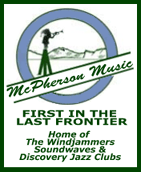 By SABIN RUSSELL San Francisco Chronicle June 21, 2006
The report by the U.S. Food and Drug Administration, obtained by the San Francisco Chronicle under a Freedom of Information Act request, details the results of a nine-day inspection the FDA conducted in July.
Today, the same Liverpool plant is in full production for this fall's flu shot season, and the company expects to produce up to 40 million doses for the U.S. market. It also has been tapped to fill a $62.5 million federal contract to make an experimental human vaccine against the H5N1 strain of bird flu. At the time of the inspection, the Emeryville company was under heavy pressure to resume making flu shots at its Liverpool factory after its entire production run of 48 million doses - half the U.S. flu shot supply - had been condemned the year before and destroyed. Despite the high stakes, FDA inspectors found that Chiron still was unable to test reliably for the presence of bacteria that had caused the previous year's shutdown and had failed to complete dozens of reports routinely required whenever problems crop up in the laborious vaccine-making process. It took Chiron until Oct. 17 - well into the flu shot season - to win FDA approval to ship vaccine from the plant. Experts asked by the Chronicle to review the latest inspection document said they were surprised by the extent of the problems found last summer and by the evidence of continued carelessness on the part of plant operators. "I find it pretty stunning," said Sarah Sellers, a pharmaceutical safety expert based near Chicago, who does consulting for the FDA but is not involved in the Chiron inspection. "... The persistence of the problems is concerning." In April, Chiron sold its remaining shares to Swiss pharmaceuticals maker Novartis. Company spokeswoman Alison Marquiss said Novartis "is committed to continuous improvement and investment in this business." She added that the company is "applying the lessons of regulatory guidance and our own pharmaceutical experience, and we expect to meet and exceed requirements for traditional flu vaccine manufacture." According to the newly released report, FDA inspectors last summer found Chiron was still encountering "sterility failures" as late as May 17, 2005, and they found fault with numerous tests used to identify bacteria and with steps taken to assure water purity. Although Chiron reported Aug. 31 that the FDA had found the company's response to the inspection "generally acceptable," additional approvals were required before it could ship the vaccine. It took another six weeks for Chiron to win those final clearances - although the nature of the improvements made during that time has not been disclosed. The company eventually shipped 13 million doses, well short of the 18 million to 25 million it had predicted for its return to market. Chiron's late recovery - and the uncertainty that it would make it back into the vaccine market at all - helped create spot shortages of vaccine last fall and was particularly unnerving to the California Department of Health Services, which had ordered from Chiron half of the 751,000 doses it would buy to distribute to county health clinics and nursing homes. The newly released inspection report sheds light on why the company couldn't re-enter the flu vaccine market faster. Much of the seven-page report from last summer's inspection is highly technical, and the FDA blanked out words or phrases on every page to protect information deemed by the company to be commercially sensitive. Among the findings were that Chiron had isolated Serratia marcescens bacteria in five lots of vaccine during manufacturing last year and 11 times in routine environmental sampling. Serratia are the bacteria that contaminated Chiron's vaccine during the summer of 2004 and led to the temporary loss of its license. The FDA inspectors also wrote that Chiron had yet to develop a useful test that could spot Serratia while it is dormant, which could allow the bacterium to remain undetected until it entered an environment favorable to growth. Scripps Howard News Service, http://www.shns.com Publish A Letter on SitNews Read Letters/Opinions
|
||


